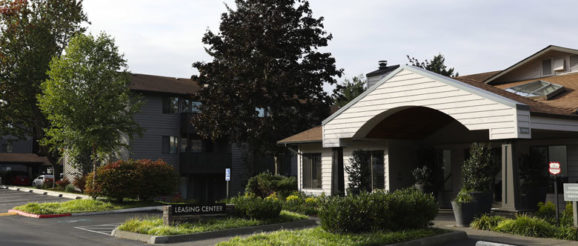Microsoft’s housing pledge shows welcome innovation | The Seattle Times

A partnership between Microsoft and King County Housing Authority demonstrates the creativity and teamwork the region needs, as it works to address its shortage of affordable housing.
Other major employers should consider following Microsoft’s lead in offering new approaches to a housing challenge their growth exacerbates. Government cannot solve this problem itself, especially not by increasing taxes that reduce affordability.
Microsoft is helping finance the purchase of five older apartment complexes, preserving a total of 1,029 units affordable to middle- and lower-income residents. The complexes in Bellevue, Kirkland and Federal Way were likely to see big rent increases or demolition, to make way for more expensive housing.
Microsoft is loaning $60 million at 1% interest to make the deal happen. King County is providing $20 million, leveraging lodging taxes that historically funded stadiums, and the housing authority will issue $140 million in bonds.
This is the first big outlay from Microsoft’s remarkable pledge of $500 million toward the regional housing crisis. It will provide $225 million of below-market financing and $250 million of market-rate financing for housing projects, plus $25 million in grants. This should nudge the market to produce and preserve more midrange housing, particularly in suburbs.
Creativity is shown not just in financing, but in opting to preserve older structures that are naturally more affordable and cost much less than developing new units.
Efficiencies need to be part of the conversation as the region invests heavily in subsidized housing. Not only is more housing needed, taxpayers need to get the best return possible on their investments.
Within King County, cities, the county, the state and the federal government invested at least $306.5 million per year, on average, in affordable housing from 2012-2017.
Statewide, taxpayers invested more than $1 billion in affordable housing since 1987, through tax breaks provided to developers building or rehabilitating apartments and keeping 20% affordable. Such breaks shift tax burden to other taxpayers. But the benefits — how much affordability results — are unclear because of weak and inconsistent reporting, according to a recent legislative audit. Municipalities must improve reporting of outcomes.
As with the response to homelessness, it helps to have companies like Microsoft participate. They bring high standards for measuring progress and accountability. That helps drive efficiency and better performance, which in this case means helping as many people as possible maintain or obtain affordable housing.
Public-private partnerships also demand transparency. Affordable housing is not just a policy question, it’s a profitable business for some — Microsoft expects a decent return on its market-rate financing. So the public must know how its dollars are being used and how everyone benefits.
For more than 3,000 county residents living in the 1,029 preserved apartments, the most important thing here is that they won’t lose their affordable homes. Their rents are now stabilized. Future increases will be moderate, reflecting operating costs, not profit-seeking and market-driven price increases.
Do you have something to say?
Share your opinion by sending a Letter to the Editor. Email
The public retains ownership — Microsoft is basically being a helpful bank. Eventually, the housing authority could add additional units at some sites. The authority could also redevelop them in the future, taking advantage of incentives available for transit-oriented developments, as they are near transit service.
Progress on housing is happening, with good ideas and welcome support from corporate neighbors. But more is needed.
